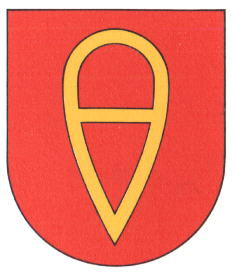Linx: Difference between revisions
Jump to navigation
Jump to search
Knorrepoes (talk | contribs) m (Text replacement - "|center|Wappen von {{PAGENAME}}]] " to "|center|alt=Wappen von {{PAGENAME}} / Arms of {{PAGENAME}}]] ") |
Knorrepoes (talk | contribs) m (Text replacement - " / Arms" to "/Arms") |
||
| Line 7: | Line 7: | ||
Incorporated into : 1974 [[Rheinbischofsheim]] (1975 [[Rheinau (Ortenaukreis)|Rheinau]]) | Incorporated into : 1974 [[Rheinbischofsheim]] (1975 [[Rheinau (Ortenaukreis)|Rheinau]]) | ||
[[File:linx.jpg|center|alt=Wappen von {{PAGENAME}} / Arms of {{PAGENAME}}]] | [[File:linx.jpg|center|alt=Wappen von {{PAGENAME}}/Arms of {{PAGENAME}}]] | ||
{| class="wikitable" | {| class="wikitable" | ||
Revision as of 11:29, 2 September 2022
This page is part of the German heraldry portal Deutsche Wappensammlung |
Heraldry of the World |
|
German heraldry:
|
Selected collector's items from Germany:
|
LINX
State : Baden-Württemberg
District (Kreis) : Ortenaukreis (until 1973 Kehl)
Incorporated into : 1974 Rheinbischofsheim (1975 Rheinau)
| German | In Rot das goldene Dorfzeichen, ein mit der Spitze nach unten gekehrter Feuerstahl mit Querbügel. |
| English | No blazon/translation known. Please click here to send your (heraldic !) blazon or translation |
Origin/meaning
The arms were designed and adopted in 1904.
The symbol is the historical village sign, used for example on border stones. The symbol also appeared on the seal of the local alderman from 1811, who used it with the letter H, his initial. In 1904 the arms were designed in the colours of the State of Baden.
Contact and Support
Partners:
Your logo here ?
Contact us
© since 1995, Heraldry of the World, Ralf Hartemink 
Index of the site
Literature : Huber, 1987












